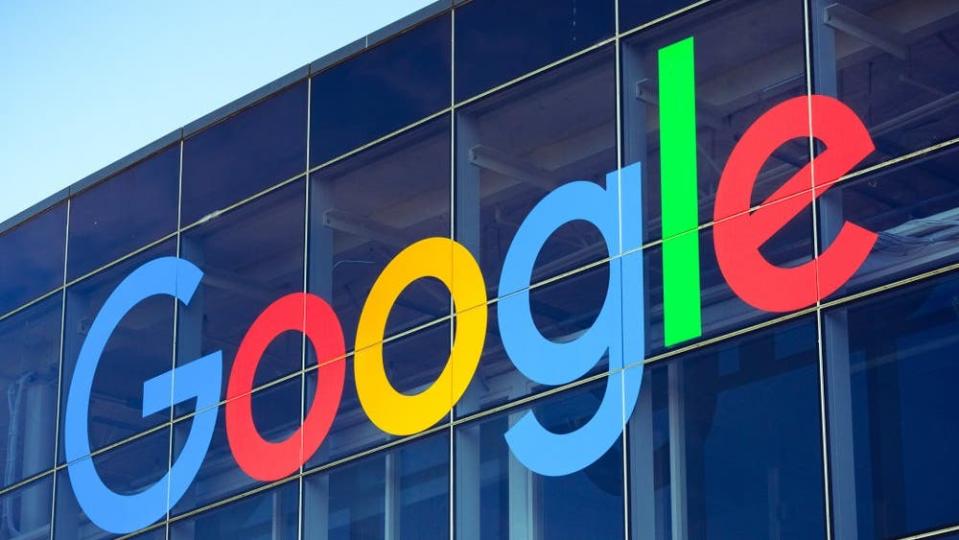Google Briefly Lost Ownership Of Its Domain After It Was Mistakenly Sold For $12 To A Former Employee

Even tech giants make mistakes. In a surprising incident from 2015, Google once briefly lost ownership of its domain, Google.com, as reported by CNN.
Sanmay Ved, a former employee, managed to buy the domain late at night while exploring Google’s domain service platform. To his utter shock, Google.com was listed as available, and he purchased it for just $12.
Don't Miss:
Invest in time-tested solution that aims to solve this $600 billion women’s health problem at 80 cents per share.
This Uber-for-moving startup is quietly taking the world by storm, here’s how anyone can invest for a limited time.
Ved shared a detailed account of an unexpected incident on LinkedIn, describing how he stumbled upon the availability of "google.com" on Google Domains. At 1:20 a.m. Eastern Time, he was exploring the platform when he entered the domain into the search bar and was surprised to find it listed as available. Contrary to usual indications, the option to add the domain to his cart was visible, which is typically not seen unless a domain is genuinely available for sale.
Upon clicking the "add to cart" icon, the domain was successfully added to his cart, confirmed by a green checkmark. Ved proceeded to checkout, curious to see if the transaction would go through. He recalled, "I was hoping I would get an error at some time saying the transaction did not go through, but I was able to complete the purchase, and my credit card was actually charged!"
Trending: Amid the ongoing EV revolution, previously overlooked low-income communities now harbor a huge investment opportunity.
He immediately received access to Google Webmaster Tools notifications, confirming his temporary ownership. He provided screenshots of the emails and proof of the charge appearing on his credit card as well.
Ved also reported the incident to Google Security. In his post, he mentioned, "Google has reverted, has acknowledged the incident, and is investigating into the incident."
Google reached out and was reportedly "excited" to compensate Ved with $6,000.13, an amount humorously reflecting the brand’s name numerically. When Ved decided to donate the sum to charity, Google commendably doubled the reward to $12,000.
This incident exposed a rare lapse in Google’s domain registration services and provided significant security insights. Following the incident in 2015, Google paid out a total of $2 million to researchers who identified vulnerabilities across its platforms, underscoring the importance of security vigilance and the value of ethical hacking.
Google continues to offer significant rewards through its Vulnerability Rewards Program (VRP), although the amounts vary depending on the severity and impact of the vulnerabilities discovered. In 2023, Google paid out $10 million to security researchers. This amount represents a slight decrease from the $12 million paid out in 2022. The highest reward in 2023 for a single vulnerability was $113,337, showcasing Google’s ongoing commitment to compensating those who help enhance the security of its platforms.
Google has also broadened the scope of its Vulnerability Reward Programs (VRPs) to include emerging threats and new technology areas such as generative AI, further emphasizing the program’s expansion and its importance to Google’s overall security strategy. This strategic approach not only enhances product security but also fosters a robust relationship with the global security research community, encouraging more participants to contribute to the safety of Google’s expansive suite of services.
Keep Reading:
Invest like a millionaire. Exclusive opportunity to invest in Epic Games $17 billion gaming empire.
A groundbreaking energy company plugs into the $400 billion EV industry and is seeking investors.
"ACTIVE INVESTORS' SECRET WEAPON" Supercharge Your Stock Market Game with the #1 "news & everything else" trading tool: Benzinga Pro - Click here to start Your 14-Day Trial Now!
Get the latest stock analysis from Benzinga?
This article Google Briefly Lost Ownership Of Its Domain After It Was Mistakenly Sold For $12 To A Former Employee originally appeared on Benzinga.com
© 2024 Benzinga.com. Benzinga does not provide investment advice. All rights reserved.
